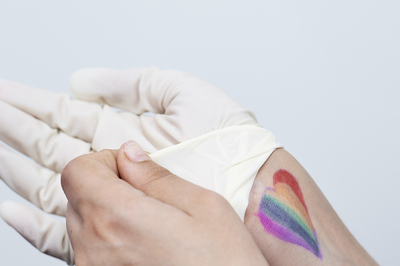
While acceptance is rising of LGBTQ individuals, stressful stigmas, and stereotypes persist.
Adults defined as “sexual minority,” including those who identify as lesbian, gay, bisexual, transexual and queer (LGBTQ), have higher rates of substance misuse and substance use disorders than their heterosexual peers, according to statistics shared by the NIH’s National Institute on Drug Abuse (NIDA). Specifically, they’re two times more likely than heterosexuals to have used illicit drugs over the past year and are significantly more likely to report past-year binge drinking than heterosexual adults. There is a bright side to this trend, however: Understanding it is a step toward reversing it.
Here’s a closer look at three reasons why LGBTG community members are at a higher risk of substance abuse than the general population.
1. LGBTQ people have higher levels of stress.
While significant progress has been made toward acceptance of LGBTQ people, there’s still a long way to go before equality is reached. This stress often starts in the home with a lack of family acceptance and continues throughout life in the form of social prejudice and discriminatory laws. While some of these negative beliefs and behaviors are expressed in verbal and physical violence, others are more subtle. In either case, they are pervasive with the potential to integrate all areas of life, including employment, housing, health care, and relationship recognition.
Over time, these daily adverse social conditions cause high-stress levels, which are associated with the increased likelihood of abusing drugs or alcohol as a coping mechanism. This can turn into a vicious cycle as people who are addicted to drugs may already be hypersensitive to stress.
2. Inadequate cultural competency is a major obstacle.
The Centers for Disease Control and Prevention refers to “cultural competence” as “a set of congruent behaviors, attitudes, and policies that come together in a system, agency or among professionals that enables effective work in cross-cultural situations.” Inadequate cultural competency across all aspects of life impacts LGBTQ individuals but is especially problematic in health care settings.

Healthcare professionals who lack cultural competence skills may do more harm than good when it comes to getting LGBTQ addicts the help they need.
Many LGBTQ people have had bad experiences with health care professionals ranging from outright hostility to lack of awareness. This may make them hesitant to utilize health care services and/or to seek out substance abuse treatment. It may also make them opt-out of disclosing their sexual or gender minority status which can be isolating and a direct impediment to recovery as the underlying causes of the addiction will not be addressed.
Furthermore, even when LGBTQ community members do seek out treatment, there’s no guarantee that the staff of a particular treatment center will have the appropriate training to cater to their unique needs.
3. Socialization settings and marketing strategies compound the problem.
For many members of the LGBTQ community, LGBTQ-friendly bars, clubs, and restaurants are safe spaces. Unfortunately, these are also places where smoking, drinking, and drug use are common. Spending time in these environments increases the chances of use and misuse.
Making matters worse is the fact that LGBTQ individuals have been a target market for tobacco and alcohol companies for decades. According to an American Cancer Society fact sheet, for example, “The [tobacco] industry focuses advertising and sponsorships on themes important to the [gay and transgender] community: liberation, individualism, social success, and acceptance.” In designing marketing campaigns that appeal to the LGBTQ population and exploiting LGBTQ social networks to market to them, tobacco and alcohol companies have facilitated substance use and misuse within the community.
While the statistics may seem grim, experts say there is cause for hope. As societal acceptance of LGBTQ orientations continues to increase, rates of substance use and abuse should decrease. If you or someone you love is struggling with LGBTQ addiction, meanwhile, finding a culturally competent treatment center with programs designed to address the specific needs of LGBTQ individuals can make all the difference. Enter Harris House, a leading St. Louis area drug rehab facility for more than 50 years. Call us today to learn about admissions.







